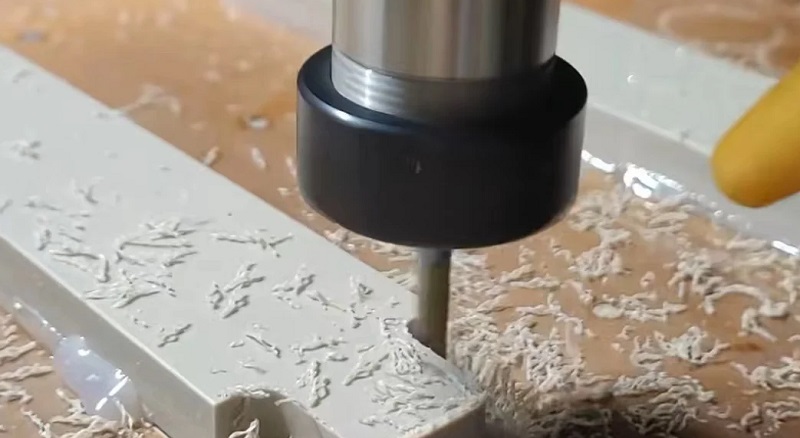Jan 22 , 2025
CNC machining is the cornerstone of modern manufacturing, allowing precision, efficiency, and versatility. While metals have been the traditional choice for machining, PEEK (Polyetheretherketone) is emerging as a compelling alternative. But why is PEEK gaining traction over metals in certain applications? Let’s dive into the details.

PEEK, or Polyetheretherketone, is a high-performance thermoplastic known for its exceptional mechanical, chemical, and thermal properties. Its unique characteristics make it a standout material in industries requiring precision and reliability.
High Strength-to-Weight Ratio: PEEK offers impressive strength while being significantly lighter than most metals.
Thermal Stability: With a melting point of around 343°C, PEEK retains its properties under extreme temperatures.
Chemical Resistance: PEEK is resistant to most chemicals, making it ideal for harsh environments.
Low Moisture Absorption: It remains stable in humid or wet conditions.
Biocompatibility: PEEK is safe for medical applications, including implants.
Metals: While robust, metals like steel and titanium add significant weight to components.
Custom PEEK CNC machining: Provides comparable strength to some metals but with a fraction of the weight. This is especially crucial in aerospace and automotive industries, where reducing weight can improve efficiency and performance.
Metals: Require coatings or treatments to resist corrosion and chemical damage.
PEEK: Naturally resistant to corrosion and a wide range of chemicals, making it a low-maintenance option for challenging environments.
Metals: Often excellent for high-temperature applications but can deform or lose strength at extreme heat.
PEEK: Retains its mechanical properties at temperatures as high as 250°C, making it suitable for high-heat environments like engine components.
Metals: Conduct electricity and may require insulation for electrical applications.
PEEK: Acts as an excellent electrical insulator, making it ideal for electronics and semiconductors.
Metals: Can be challenging to machine, especially hard metals like titanium.
PEEK: Easier to machine due to its low tool wear and reduced cutting forces, leading to faster production times and lower tool maintenance.
Metals: Some metals can cause adverse reactions in medical applications.
PEEK: Biocompatible and radiolucent, making it a preferred choice for implants and other medical devices.
Metals: Can amplify noise and vibrations in mechanical systems.
PEEK: Offers natural damping properties, reducing noise and improving system longevity.
Aerospace and Automotive
Lightweight PEEK components improve fuel efficiency and reduce emissions.
Its resistance to wear and high temperatures makes it ideal for gears, bearings, and bushings.
Medical Devices
PEEK’s biocompatibility and radiolucency make it perfect for implants, surgical tools, and dental applications.
Electronics
PEEK’s electrical insulation properties are invaluable in connectors, insulators, and semiconductor components.
Oil and Gas
With its chemical and thermal resistance, PEEK thrives in the harsh conditions of oil rigs and pipelines.
While PEEK’s initial material cost is higher, its benefits in terms of reduced machining time, longer tool life, and lower maintenance costs often make it more economical over the product lifecycle.
PEEK isn’t here to replace metals entirely, but it’s undoubtedly a strong alternative in specific applications where its unique properties shine. Whether it’s weight reduction, corrosion resistance, or biocompatibility, PEEK offers solutions that metals can’t always match. As technology advances, the choice between PEEK and metals will depend on the specific demands of the application—and in many cases, PEEK will come out on top.
This is the first one.